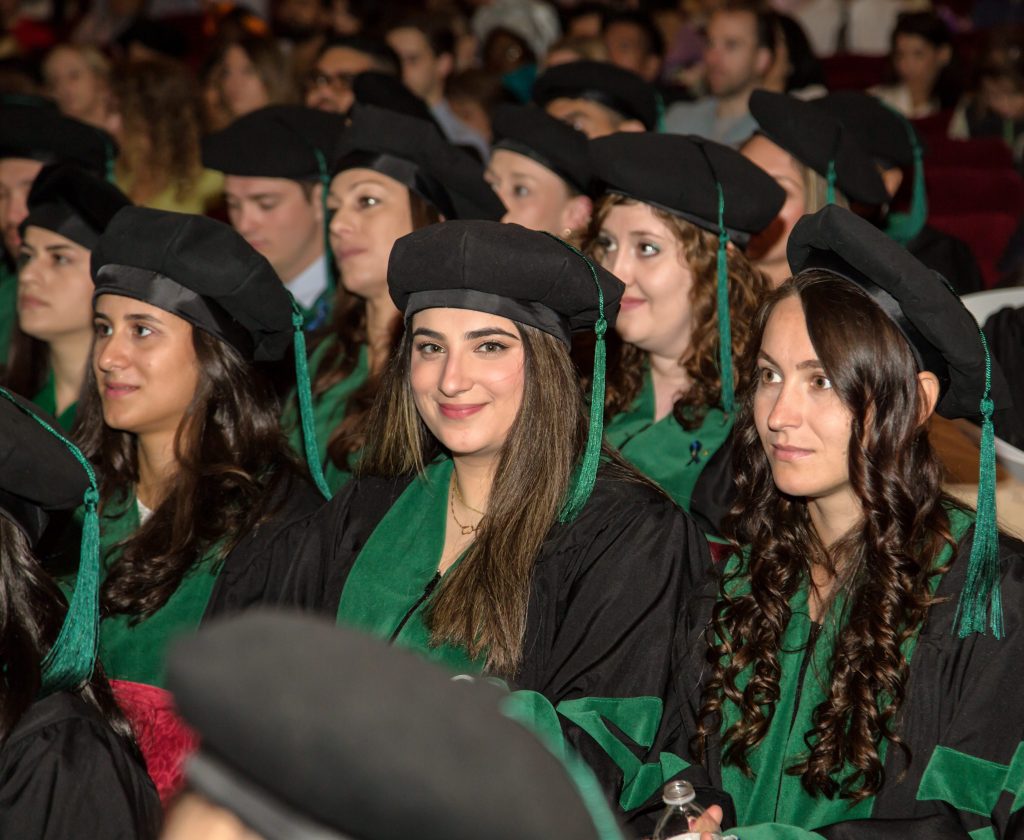
What Comes After Medical School Graduation
Discover the medical career steps that come after graduation: internship, USMLE Step 3, residency, board exams, job applications, and continuing education.

For anyone considering medical school, graduation is a dream that can seem a long way off. But in many ways, this exciting milestone is just the start of your medical career. If you’re not yet familiar with what happens after medical school, we’re here to help you out.
What follows after medical school graduation is a series of pivotal stages in practical training and career development. In this blog post, we’ll walk you through the key milestones that developing physicians encounter after graduating from medical school.
Important Steps to Becoming a Practicing Physician
Internship (Year One)
The first step post-graduation is the internship year, also known as the preliminary year or PGY-1 (Post-Graduate Year 1). It is usually your first year of residency. During this period, new doctors rotate through different specialties, while gaining hands-on experience and improving their clinical skills. It’s the time when new doctors put their theoretical knowledge into practice by making real patient care decisions.
USMLE Step 3
The USMLE Step 3 comes after your internship year and is the final part of the United States Medical Licensing Examination (USMLE) series. Steps 1 and 2 occur at different points during medical school; check out this medical program timeline to learn more. Step 3 is a two-day test that assesses your ability to apply scientific medical knowledge and clinical health practices, which are essential for your future as an unsupervised medical practitioner. Successfully passing Step 3 is important if you intend to practice independently in the United States.
- Day 1 focuses on assessing your knowledge of medical and scientific principles. You’ll encounter approximately 233 multiple-choice questions, spread over six 60-minute examination blocks. The questions cover many topics, including ethics, safety, epidemiology principles, and more.
- Day 2 focuses on clinical practices and patient care. It includes approximately 180 multiple-choice questions, spread over six 45-minute examination blocks. You will also complete 13 computer-based case simulations (CCS) that simulate authentic scenarios to test your ability to make real-world decisions and apply medical knowledge.
Residency
Following the one-year internship period, you’ll move from “intern” to “resident” and continue in your residency program for another two to seven years, depending on the specialty you choose. During residency, you will gain:
- Clinical Competency: Residents learn to provide meaningful patient care independently, under the supervision of attending physicians.
- Focused Training: Each residency program provides specialized training in a specific area of medicine.
- Professional Enhancement: You will further develop your critical thinking skills, professional abilities, and empathetic communication style with patients, families, and colleagues.
- Board Certification Training: Residency prepares you to pass the board certification exams necessary to become a practicing physician in your specialty of choice.
While challenging, residency is essential for a successful medical career. It significantly enhances your abilities and efforts in patient care, making it a very important part of your journey to becoming an independently practicing doctor.
What If You Don’t Match?
Not matching into a residency program does mean it’s the end of your medical journey. There are several options to consider if that happens:
- Reapply Next Year: Many students take that next year to enhance their experience, take on a research project, or otherwise improve their application.
- Transitional or Preliminary Programs: These programs can provide additional training and experience, making you a more well-rounded candidate the next time around.
- Alternative Careers: Some graduates explore other medical career options, such as full-time research, public health, or administration.
At Saba University School of Medicine, our graduates have achieved an extraordinary 97% residency placement rate from 2020 to 2024. This means that your chances of securing a meaningful residency opportunity are extremely high as a Saba student.
Kicking Off Your Career
Specialty Board Exams
Near the end of your residency, you’ll need to prepare for your specialty board exams. These exams certify that you have the abilities and knowledge necessary to practice independently in your chosen specialty. Passing these exams is often a prerequisite for obtaining hospital privileges and insurance panel participation.
Fellowship Programs
Some doctors choose to pursue additional training in fellowship programs. These programs provide advanced training in subspecialties such as neonatology, nephrology, or endocrinology. Fellowships can last 1-3 years and offer an opportunity to gain specialized knowledge and skills.
Applying for Jobs
Don’t forget, doctors must still apply for the jobs they want! Once you’ve completed your residency, it’s time to start applying. Whether you enter a hospital, private practice, or become an instructor yourself, job searching is a critical step in launching your medical career.
Continuing Education
The field of medicine is constantly evolving, making a commitment to lifelong learning essential for effective medical practitioners. In many countries, including the United States and Canada, continuing education is mandatory for maintaining your licensure status.
Continuing education helps physicians stay up-to-date on the most effective medical research, technologies, and treatments. Keeping your knowledge updated will enable you to provide more accurate diagnoses, make the best possible recommendations and decisions for patients, and provide the most effective treatments. It also enhances communication skills, understanding, and cultural engagement, improving outcomes for all involved.
Continuing education can mean attending conferences, participating in workshops, and completing Continuing Medical Education (CME) courses. For example, in the United States, physicians might attend the American Medical Association’s (AMA) annual conference or participate in CME courses offered by renowned medical institutions such as the Mayo Clinic. In Canada, doctors may attend the Canadian Medical Association’s (CMA) General Council meeting or engage in CME activities through the Royal College of Physicians and Surgeons of Canada.
Conclusion
Every step of your post medical school journey, from graduation, internships, and residency to board exams and job applications, is an opportunity to improve your knowledge and enhance your skills. Remember, there are many ways to achieve your medical dreams and contribute meaningfully to both local and international healthcare. It may not always be easy, but always try to embrace the journey, stay curious, and keep improving—you won’t regret it!
Explore the 4-Year M.D. Program at Saba University School of Medicine to get started today.

For prospective students
Saba is committed to supporting prospective students with any questions or queries throughout the application process. Please see the following links for detailed information about each topic:
If the information you are seeking is not provided here, please get in contact by contacting via WhatsApp here.
Get in touch for more information